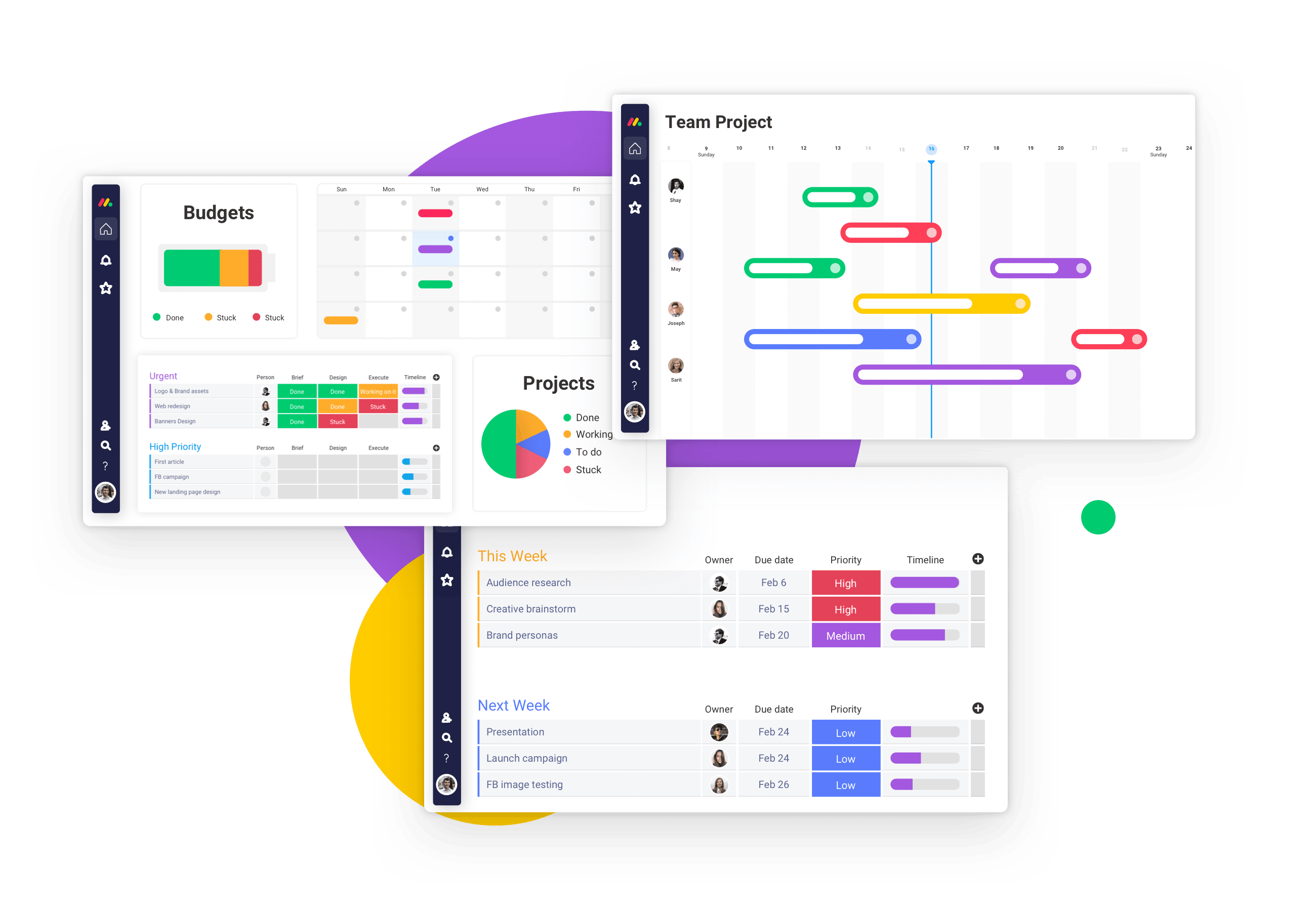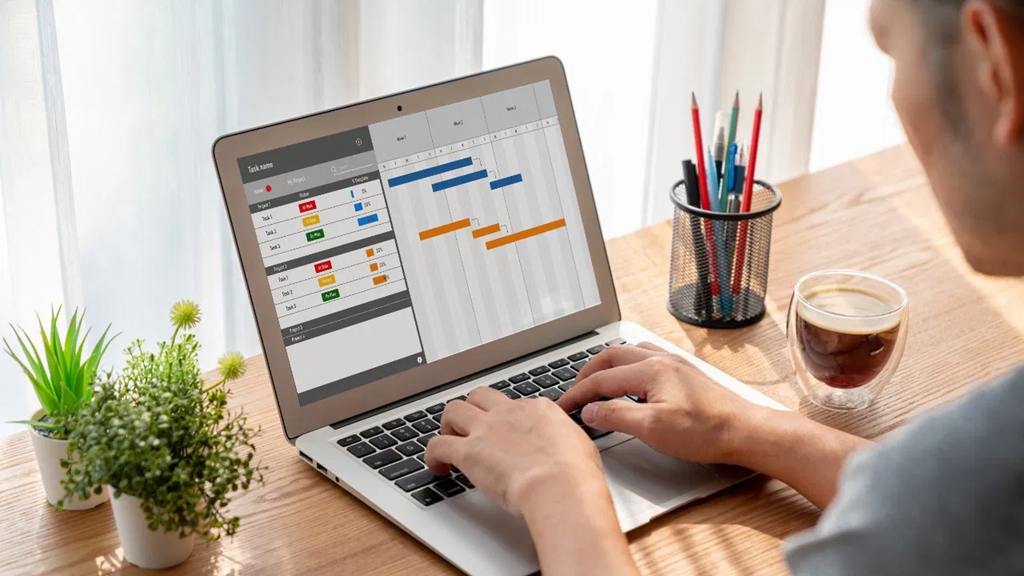Efficient project management is the cornerstone of success in today’s fast-paced business environment. Whether you’re leading a small team or managing large-scale projects, the right tools can make all the difference. They help streamline workflows, improve collaboration, and ensure that your team meets deadlines without compromising on quality.
We’ll explore the top 10 project management tools, highlighting their features, benefits, and how they can transform your workflow. By the end, you’ll have a clear idea of which tools best suit your needs.
Why Project Management Tools Are Essential

Project management tools are designed to:
- Enhance Collaboration: Facilitate seamless communication among team members.
- Boost Productivity: Organize tasks, track progress, and allocate resources effectively.
- Improve Accountability: Assign roles and responsibilities, ensuring everyone knows their part.
- Provide Real-Time Insights: Track project milestones, budgets, and timelines.
Choosing the right tool depends on your team size, industry, and specific requirements. Let’s dive into the top tools available today.
1. Trello
Overview:
Trello is a user-friendly project management tool that uses boards, lists, and cards to help teams organize tasks visually.
Key Features:
- Drag-and-drop interface for easy task management.
- Integration with apps like Slack, Google Drive, and Jira.
- Customizable workflows for different types of projects.
Best For:
Small to medium-sized teams that prefer a visual approach to project management.
Pricing:
Free plan available; paid plans start at $5 per user per month.
2. Asana
Overview:
Asana is a versatile tool that simplifies project management by allowing teams to plan, organize, and track work in one place.
Key Features:
- Task assignments with deadlines and priority levels.
- Multiple project views: List, Board, Calendar, and Timeline.
- Automated workflows and integration with over 200 apps.
Best For:
Teams looking for a comprehensive tool to manage both simple and complex projects.
Pricing:
Free plan available; premium plans start at $10.99 per user per month.
3. Monday.com

Overview:
Monday.com is an intuitive platform that provides customizable workflows to suit various project needs.
Key Features:
- Visual dashboards to track project progress.
- Automation for recurring tasks.
- Integration with tools like Zoom, Slack, and Microsoft Teams.
Best For:
Large teams needing robust customization options and scalability.
Pricing:
Plans start at $8 per user per month.
4. Microsoft Project
Overview:
Microsoft Project is a powerful tool for managing complex projects with detailed timelines and resource allocation.
Key Features:
- Gantt charts for detailed project planning.
- Resource and budget management tools.
- Integration with Microsoft 365 apps.
Best For:
Experienced project managers handling large, enterprise-level projects.
Pricing:
Plans start at $10 per user per month.
5. Jira
Overview:
Jira, developed by Atlassian, is a popular tool among software development teams for tracking bugs, sprints, and agile workflows.
Key Features:
- Scrum and Kanban boards for agile project management.
- Advanced reporting and analytics.
- Integration with development tools like Bitbucket and GitHub.
Best For:
Tech teams and developers working in agile environments.
Pricing:
Free plan available; paid plans start at $7.75 per user per month.
6. Smartsheet
.png?width=1328&height=864&name=SmartSheet%20Hero%20Image%20(S).png)
Overview:
Smartsheet combines the functionality of spreadsheets with project management features.
Key Features:
- Customizable templates for various industries.
- Automation of workflows.
- Collaboration tools for real-time updates.
Best For:
Teams familiar with spreadsheet-based tools who want added project management capabilities.
Pricing:
Plans start at $7 per user per month.
7. Wrike
Overview:
Wrike is a cloud-based project management tool that offers flexibility and customization for diverse industries.
Key Features:
- Task prioritization and time tracking.
- Advanced reporting and analytics.
- Integration with over 400 apps.
Best For:
Medium to large teams needing detailed task management and reporting.
Pricing:
Free plan available; paid plans start at $9.80 per user per month.
8. ClickUp
Overview:
ClickUp is an all-in-one project management platform designed to replace multiple tools with a single solution.
Key Features:
- Customizable task views: List, Board, Calendar, and Gantt chart.
- Built-in time tracking and goal-setting features.
- Integration with over 1,000 tools.
Best For:
Teams seeking a highly customizable and feature-rich tool.
Pricing:
Free plan available; paid plans start at $5 per user per month.
9. Basecamp

Overview:
Basecamp is a straightforward tool designed to simplify team collaboration and task management.
Key Features:
- Centralized communication with message boards and group chats.
- Task assignments and progress tracking.
- Automatic check-ins to keep everyone updated.
Best For:
Small teams looking for an easy-to-use project management solution.
Pricing:
Flat rate of $99 per month for unlimited users.
10. Notion
Overview:
Notion is a versatile workspace that combines note-taking, task management, and project planning.
Key Features:
- Drag-and-drop interface for creating pages, databases, and calendars.
- Integration with apps like Slack and Google Drive.
- Templates for project management, CRM, and more.
Best For:
Individuals and small teams needing a flexible, all-in-one solution.
Pricing:
Free plan available; paid plans start at $8 per user per month.
How to Choose the Right Project Management Tool
When selecting a project management tool, consider the following:
- Team Size and Needs: Small teams may prioritize ease of use, while large teams need advanced features.
- Budget: Assess the cost versus the value offered.
- Industry-Specific Features: Some tools cater to specific industries, like software development or marketing.
- Integration Capabilities: Ensure the tool integrates with your existing software ecosystem.
FAQs About Project Management Tools
1. What is the best free project management tool?
Some of the best free tools include Trello, Asana, and ClickUp, each offering robust features for small teams.
2. Can I use multiple project management tools?
Yes, but it’s best to minimize tools to avoid confusion and ensure streamlined workflows.
3. How do project management tools improve productivity?
They organize tasks, facilitate communication, and provide real-time insights, helping teams stay aligned and efficient.
4. Are project management tools suitable for remote teams?
Absolutely. Tools like Monday.com, Wrike, and Zoom are designed for remote collaboration.
5. What’s the difference between task management and project management tools?
Task management tools focus on individual tasks, while project management tools provide a broader view, including timelines, resources, and team collaboration.




